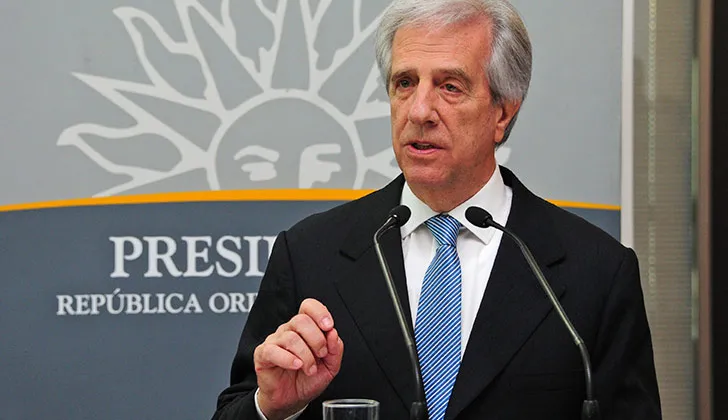President Tabaré Vázquez claimed to subscribe a world political commitment to fight non -transmissible diseases.
Vázquez urged world governments to implement policies to prevent chronic diseases such as diabetes or cardiac and respiratory.They present several risk factors such as tobacco use, unhealthy diets, physical inactivity and the harmful use of alcohol.
"We all want to be healthy, see our children grow strong and happy," President Vázquez started the message.
The same was issued on Wednesday in the framework of the presentation in New York of the latest report by the World Health Organization (WHO) on the World Smoking Epidemic.He referred to cancer, cardiovascular diseases, chronic respiratory and diabetes such as the cause of death of older adults but also 15 million people between 30 and 69 years.
The president presented the danger involved in this type of pathologies for the population and invited to participate in an international meeting to be held in Montevideo.
"Today millions of people are deprived of essential rights due to unbridled, precise and silent murderers, noncommunicable diseases," he said.President Vázquez said that these types of diseases "are responsible for the death of 40 million people a year."
He added that childhood obesity is at "critical levels" and that diabetes is increasing.In addition, he argued that together with arterial hypertension, they configure a series of risk factors for people.
In turn, it set as an example the policy implemented by Uruguay in the fight against tobacco."This was difficult and a clear example was the tireless efforts of the international tobacco industry to humiliate Uruguay in this fight," he emphasized.
"However, we continue and other countries are happily taking the same actions, giving priority to the protection of public health and the healthy development of our peoples," he added.
On the other hand, he urged to overcome "noncommunicable diseases" since "it is everyone's task, not only of governments, but political commitment is essential. Without it the goals of chronic noncommunicable diseases will be very difficult to achieve".


